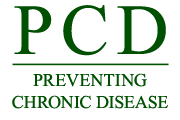PCD News Summary for August 17, 2017

Notice to News Media – PCD Release Time and Embargo Policy:
CDC’s News Media Branch releases to reporters the PCD media packet every Tuesday afternoon between 12 and 2 pm.
Embargoed until day, Month date, at 12:00 PM ET
Teach Our Children: Stroke Education for Indigenous Children, First Nations, Ontario, Canada, 2009–2012
Culturally appropriate stroke education can help teach children in tribal communities to recognize stroke signs and symptoms and how to respond if they think someone is having a stroke. Because of the heightened risk for stroke among indigenous people, researchers conducted a multiyear study from 2009 through 2012 to assess and address stroke education needs among children 11 to 13 years old residing in northern urban, rural, and remote First Nations in Ontario, Canada. The goal was to determine what young people understand about stroke and to develop an age-appropriate and culturally appropriate educational product. Researchers found that indigenous children had limited knowledge about stroke and its signs, symptoms, and consequences, and that children in remote communities were better informed than those in other locations. Educators agreed that a DVD was the most effective way to deliver stroke information to children in this age group. The principal outcome from this 3-year community engagement was an 11.5-minute DVD titled Act F-A-S-T 1-2-3. Follow-up indicated that the educational tool continued to be used to educate indigenous children and adults about stroke signs and symptoms, the need for early response, and risk reduction.
Melissa Newton
mnewton@cdc.gov
404-718-6281
Maximum Lifetime Body Mass Index and Mortality in Mexican American Adults: the National Health and Nutrition Examination Survey III (1988–1994) and NHANES 1999–2010
Mexican American adults living in the U.S. had an increased risk of death if their BMI was greater than or equal to 30 kg/m2. This finding remained whether at time of study participation or when reporting a history of a BMI of greater than or equal to 30 kg/m2, at some point in life. Previous epidemiologic studies indicate a lack of an association between obesity and mortality in U.S. Hispanic adults. Researchers reexamined this lack of an association in more than 6,000 Mexican-American adults using maximum lifetime weight histories. They found that Mexican-Americans with a maximum lifetime BMI of 35 kg/m2 or higher who remained at that weight at time of survey participation had a 2-fold increased risk of death. Mexican-Americans who reported a maximum lifetime BMI of 30 kg/m2 or higher and had lost weight over time had increased risk of all-cause and diabetes-related death. Researchers suggest that maximum lifetime BMI should be included when evaluating obesity-mortality associations in this population.
Melissa Newton
mnewton@cdc.gov
404-718-6281
Using Practice Facilitation to Increase Rates of Colorectal Cancer Screening in Community Health Centers, North Carolina, 2012–2013: Feasibility, Facilitators, and Barriers
With the assistance of a practice facilitator, federally qualified health center (FQHC) physicians and staff can successfully implement changes to increase colorectal cancer screening rates. While testing for colorectal cancer has increased significantly over the past decade, many patients who receive care from FQHCs do not get screened. Researchers evaluated the feasibility of using practice facilitation to help clinics increase their colorectal cancer screening rates. Practice facilitators are quality improvement experts who work with providers and staff members to make positive changes in patient care. In this study of three FQHCs, the percentage of patients who received a recommendation for screening doubled, and the percentage of patients who were up-to-date with screening guidelines increased by 11 percent. Practice facilitation is a feasible, promising approach to improving cancer screening in FQHCs.
Melissa Newton
mnewton@cdc.gov
404-718-6281
###
Note: Not all articles published in PCD represent work done at CDC. In your stories, please clarify whether a study was conducted by CDC (“a CDC study”) or by another institution (“a study published by CDC”). The opinions expressed by authors contributing to PCD do not necessarily reflect the opinions of CDC or the institutions with which the authors are affiliated. PCD requests that, when possible, you include a live link to the article in your stories.
###
U.S. DEPARTMENT OF HEALTH AND HUMAN SERVICES
CDC works 24/7 protecting America’s health, safety and security. Whether diseases start at home or abroad, are curable or preventable, chronic or acute, stem from human error or deliberate attack, CDC is committed to respond to America’s most pressing health challenges.
- Page last reviewed: August 17, 2017
- Page last updated: August 17, 2017
- Content source:



 ShareCompartir
ShareCompartir